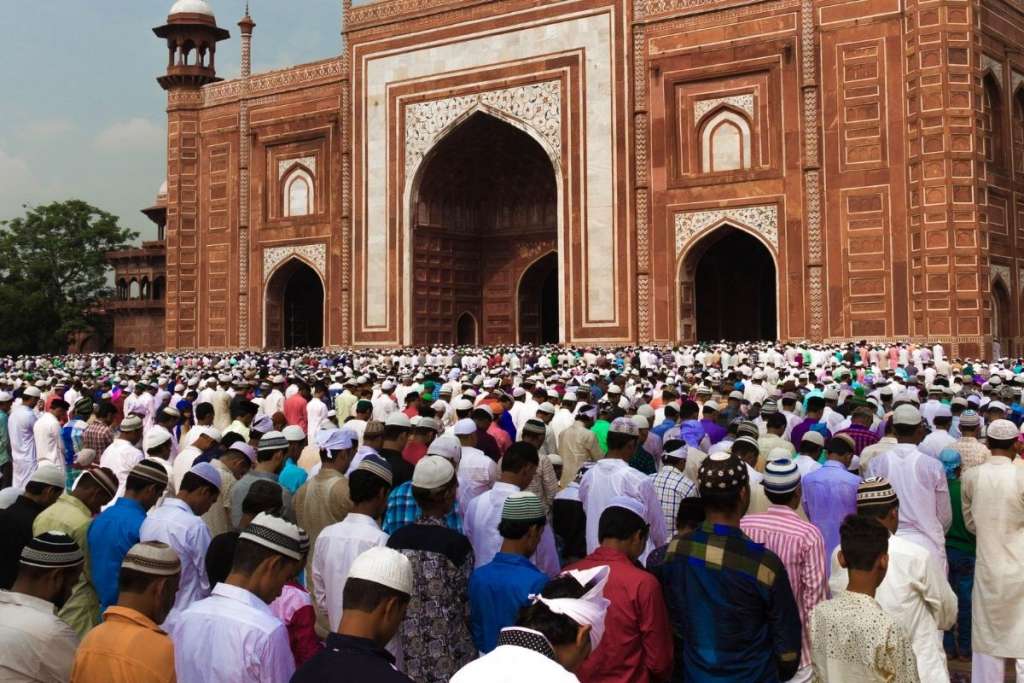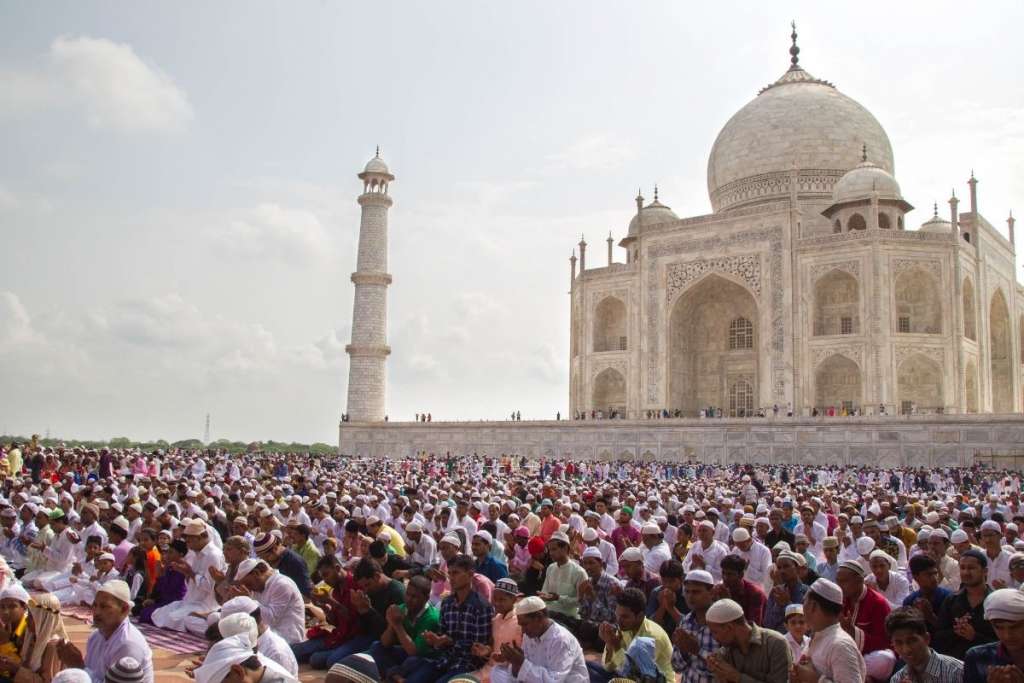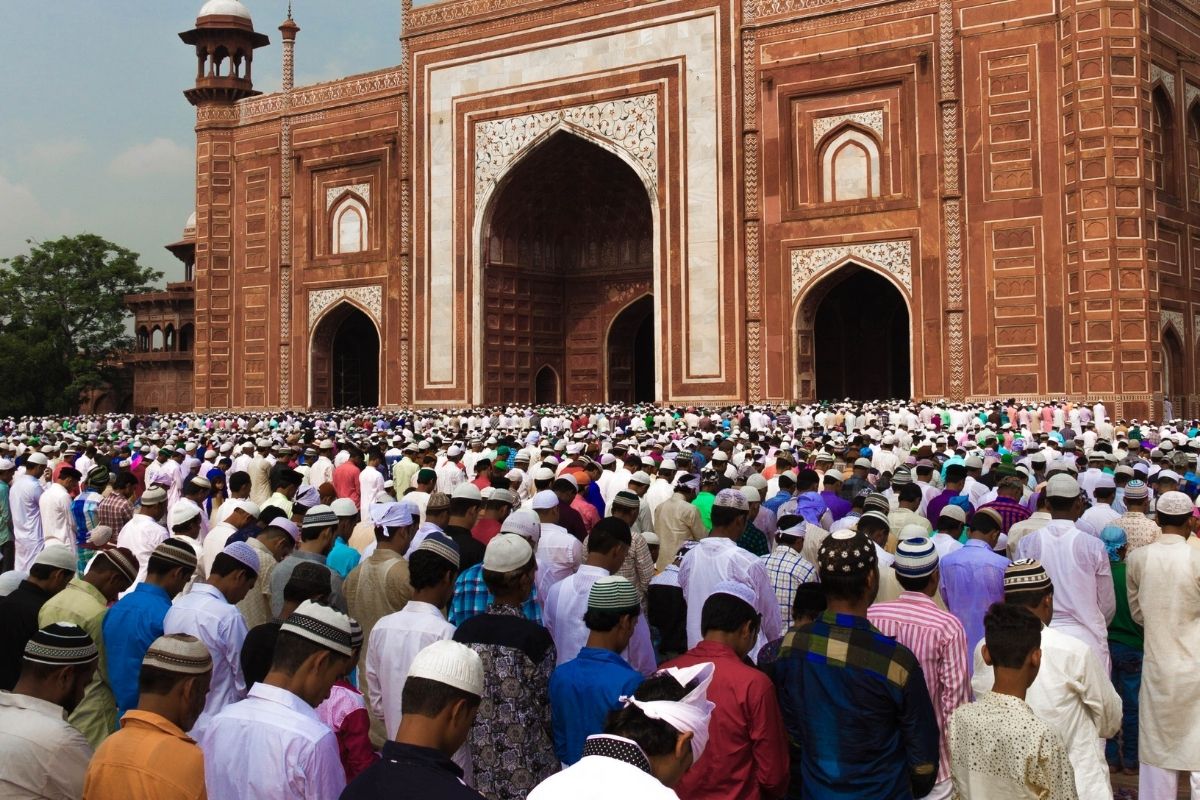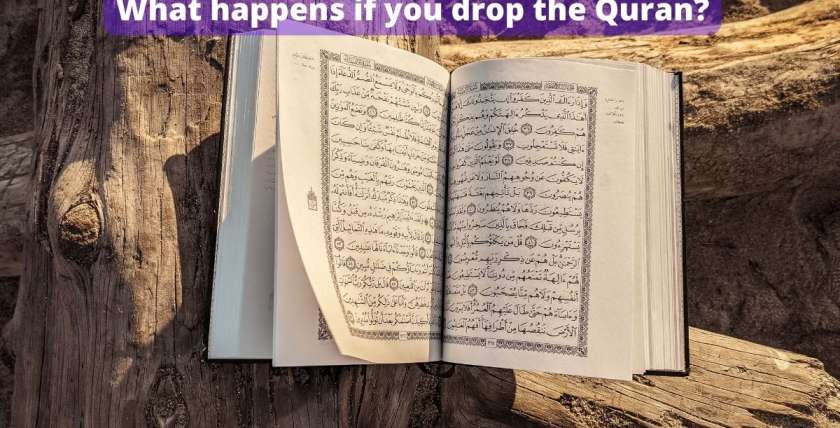After the salah ends a khutbah is given, so in this article, we will learn together how to perform Eid Khutbah step by step.
How to perform Eid khutbah? To perform Eid khutbah you should first prepare for it, choose the topic you want to discuss, and choose an easy and relevant topic for Eid. Then at the khutbah greet the people and recite the Takbeer then start with the khutbah.
If you want to learn how to perform Eid khutbah step by step then keep reading.
How to give Eid khutbah?

Jaabir ibn ‘Abd-Allaah said: “The Messenger of Allah (peace and blessings be upon him) came out on the day of Fitr or Adha and delivered a khutbah standing, then he sat for a while, then he stood up.”
Khutbah is called sermon in English and it is given into two Khutbah with a brief break between the two. The khutbah is given after the Eid prayer not before it.
To prepare to perform Eid Khutbah, You should first start by choosing the topic of your khutbah. Don’t choose a controversial topic, instead find a topic that will unite the congregation.
The controversial topic will cause division that’s why you should avoid them, and also don’t choose a complicated topic. A khutbah should be simple and easy to understand. The point of Eid khutbah is for people to learn from it. So, if it was to complicated people will not understand it.
Choose a relevant topic to the Eid to help the crowd understand what is Eid and why is it so important.
Now it is the time for delivering the Khutbah, start by greeting the crowd by saying “Assalamu ‘alaikum wa rahmatullah wa barakatuh”. After that recite the Eid takbeer then start with your khutbah, include the verses of taqwa in it.
Here are the verses you could include in the Eid khutbah:
يَـٰٓأَيُّهَا ٱلَّذِينَ ءَامَنُوا۟ ٱتَّقُوا۟ ٱللَّـهَ حَقَّ تُقَاتِهِۦ وَلَا تَمُوتُنَّ إِلَّا وَأَنتُم مُّسْلِمُونَ
Ya ayyu-hallatheena aama-nutta-qullaha haqqa tuqatihi wala tamootunna illa waantum muslimoon (You who believe, be mindful of God, as is His due, and make sure you devote yourselves to Him, to your dying moment. [6] )
يَـٰٓأَيُّهَا ٱلنَّاسُ ٱتَّقُوا۟ رَبَّكُمُ ٱلَّذِى خَلَقَكُم مِّن نَّفْسٍ وَٰحِدَةٍ وَخَلَقَ مِنْهَا زَوْجَهَا وَبَثَّ مِنْهُمَا رِجَالًا كَثِيرًا وَنِسَآءً ۚ وَٱتَّقُوا۟ ٱللَّـهَ ٱلَّذِى تَسَآءَلُونَ بِهِۦ وَٱلْأَرْحَامَ ۚ إِنَّ ٱللَّـهَ كَانَ عَلَيْكُمْ رَقِيبًا
Ya ayyu hannas utaqoo rabba kumullathee khala qakum min nafsiw wahidatiw wakhalaqa minha zawjaha wabaththa minhuma rijalan katheeraw wanisaa-ah. Watta-qullahallathee tasaa-aloona bihi wal-arhama innallaha kana ‘alaykum raqeeba (People, be mindful of your Lord, who created you from a single soul, and from it created its mate, and from the pair of them spread countless men and women far and wide; be mindful of God, in whose name you make requests of one another. Beware of severing the ties of kinship: God is always watching over you.[7] )
يَـٰٓأَيُّهَا ٱلَّذِينَ ءَامَنُوا۟ ٱتَّقُوا۟ ٱللَّـهَ وَقُولُوا۟ قَوْلًا سَدِيدًا. يُصْلِحْ لَكُمْ أَعْمَـٰلَكُمْ وَيَغْفِرْ لَكُمْ ذُنُوبَكُمْ ۗ وَمَن يُطِعِ ٱللَّـهَ وَرَسُولَهُۥ فَقَدْ فَازَ فَوْزًا عَظِيمًا
Ya ayyu-hallatheena aama-nuttaqullaha wa qooloo qawlan sadeeda. Yuslih lakum a’maalakum wayaghfir lakum thunoobakum. Wamay yuti’illaha wa rasoolahu faqad faaza fawzan ‘atheema (Believers, be mindful of God, speak in a direct fashion and to good purpose, and He will put your deeds right for you and forgive you your sins. Whoever obeys God and His Messenger will truly achieve a great triumph. [8])
When you finish the first khutbah or the first part of it take a brief break, sit down for a while. After you finish the break stand up again and praise Allah and the prophet, say: Alhamdulillah was Salatu Wassalamu ‘ala Rasulullah, its English translation is as follows: “My thanks and gratitude belong to Allah the Lord of all mankind, I ask Allah to bless and bestow peace on Prophet Muhammad”. Continue with your sermon.
Now you could start the new topic or summarize what you said in the first khutbah, then advise the congregation to use what they learned in their life and tell them how to do so.
End the sermon with dua and blessing, and here are some Duas you can say:
رَبَّنَآ ءَاتِنَا فِى ٱلدُّنْيَا حَسَنَةً وَفِى ٱلْـَٔاخِرَةِ حَسَنَةً وَقِنَا عَذَابَ ٱلنَّارِ
Rabbana atina fid-dunya hasanatan wa fil ‘akhirati hasanatan waqina ‘adhaban-nar.
(Our Lord, give us good in this world and in the Hereafter, and protect us from the torment of the Fire)
رَبَّنَا لَا تُؤَاخِذْنَآ إِن نَّسِينَآ أَوْ أَخْطَأْنَا ۚ رَبَّنَا وَلَا تَحْمِلْ عَلَيْنَآ إِصْرًا كَمَا حَمَلْتَهُۥ عَلَى ٱلَّذِينَ مِن قَبْلِنَا ۚ رَبَّنَا وَلَا تُحَمِّلْنَا مَا لَا طَاقَةَ لَنَا بِهِۦ ۖ وَٱعْفُ عَنَّا وَٱغْفِرْ لَنَا وَٱرْحَمْنَآ ۚ أَنتَ مَوْلَىٰنَا فَٱنصُرْنَا عَلَى ٱلْقَوْمِ ٱلْكَـٰفِرِينَ
Rabbana wala tuhammilna ma la taqata lana bihi wa’fu anna waghfir lana wairhamna anta mawlana fansurna ‘alal-qawmil kafireen.
“Lord, do not take us to task if we forget or make mistakes, Lord, do not burden us as You burdened those before us. Lord, do not burden us with more than we have strength to bear. Pardon us, forgive us, and have mercy on us. You are our Protector, so help us against the disbelievers”
رَبَّنَا لَا تُزِغْ قُلُوبَنَا بَعْدَ إِذْ هَدَيْتَنَا وَهَبْ لَنَا مِن لَّدُنكَ رَحْمَةً ۚ إِنَّكَ أَنتَ ٱلْوَهَّابُ
Rabbana la tuzigh quloobana ba’da idh hadaytana wa hab lana milladunka rahmah innaka antal Wahhab.
“Our Lord, do not let our hearts deviate after You have guided us. Grant us Your mercy: You are the Ever Giving”.
اللَّهُمَّ صَلِّ عَلَى مُحَمَّدٍ وَآلِ مُحَمَّدٍ كَمَا صَلَّيْتَ عَلَى آلِ إِبْرَاهِيمَ إِنَّكَ حَمِيدٌ مَجِيدٌ اللَّهُمَّ بَارِكْ عَلَى مُحَمَّدٍ وَآلِ مُحَمَّدٍ كَمَا بَارَكْتَ عَلَى آلِ إِبْرَاهِيمَ إِنَّكَ حَمِيدٌ مَجِيدٌ
Alahumma salli ‘ala Muhammad wa ‘ala ali Muhammad, kama sallaita ‘ala Ibrahima wa barik ‘ala Muhammad kama barakta ‘ala ali Ibrahim fil-‘alamin, innaka hamidun majid.
“O Allah, send blessings upon Muhammad and upon the family of Muhammad, as You sent blessings upon the family of Ibrahim, and send blessings upon Muhammad and upon the family of Muhammad as You sent blessings upon the family of Ibrahim among the nations. You are indeed Worthy of praise, Full of glory.”
Is Eid prayer obligatory?
There are different opinions regarding this specific topic, here are the three opinions:
- The point of view of Imam Malik and Imam al-Shafi’i: Eid prayer is sunnah, not Fard.
- Imam Ahmad says that it is a communal obligation.
- Whilst Imam Abu Hanifah says that it is obligatory for men and any man that doesn’t pray it with no excuse is a sinner.
Why do they say that Eid prayer is obligatory?

The scholars that back this point of view hold the following as evidence:
The following verse from the Holy Quran:
“Therefore, turn in prayer to your Lord and sacrifice (to Him only).” [al-Kawthar 108:2]
Ibn Qudamah interprets the meaning of this verse as: “The well-known view is that what is meant by this is the ‘Eid prayer.”
They also hold the hadith of the prophet (peace and blessing be upon him) as strong evidence.
Umm `Atiyyah (may Allah be please with her) narrated that the Prophet (peace be upon him) commanded: “Let the free women, the virgins, and the menstruating women go out to attend the Eid prayer, and witness the good and the supplications of the believers. As for the menstruating women, they should stay away from the Musalla. (i.e., should not participate in the prayer itself).”
Shaykh Ibn ‘Uthaymin said in Majmu’ al-Fatawa (16/214):
“What I think is that the ‘Eid prayer is fard ‘ayn (an individual obligation) and that it is not permissible for men to miss it, rather they have to attend because the Prophet (peace and blessings of Allah be upon him) enjoined that. He even commanded the women – including virgins and those who usually stayed in seclusion – to come out to the ‘Eid prayer, and he commanded menstruating women to come out to the ‘Eid prayer but told them to keep away from the prayer-place itself. This indicates that it is confirmed.”
He also said (16/217):
“What seems more likely to be correct in my view, based on the evidence, is that it is fard ‘ayn (an individual obligation) and that it is obligatory for every male to attend the ‘Eid prayer apart from those who have an excuse.”
Sheikhul-Islam Ibn Taymiyyah said:
“… Thus, we lean towards the opinion that Salatul-Eid is Fard `Ayn (individual obligation) on each individual. This is the opinion of Abu Hanifah and others and is one of the two reported opinions of ash-Shafi`i and of the school of Ahmad. The opinion held by some people, that it is not Wajib, is extremely unlikely because it is one of the greatest rites of Islam; more people gather for it than for Friday, and the Takbir has been legislated for its sake. The opinion of those who say that it is Fard Kifayah (communal obligation) is unjustified…”
Sheikh al-Albani states: “The Prophet’s (peace be upon him) command mentioned here indicates obligation; when it is Wajib to go out for it, it is Wajib to pray it, because of its higher priority. Thus, the truth is that it is an obligation – not a mere recommendation.”
Is there any prayer before or after Eid prayer?
There is no prayer to be performed before or after Eid prayer. And here are some hadiths to prove it:
Ibn Abbas narrated: “The Prophet (peace be upon him) went out (of his house) on the day of Fitr, prayed two Rakat, and did not pray before or after it.”
Ibnul-Qayyim said: “Neither he (peace be upon him) nor his companions prayed when they arrived at the Musalla – before the prayer or after it.”
Ibn Hajar said: “… In short, there is no confirmed sunnah prayer before or after the Eid prayer – contrary to those who compare it to the Jumu`ah prayer.”
If you want to learn more visit our website, QuranOnline.com







Comment
Ashlee
It’s an attractive and easy way to depict the feeling and temper that
a movie creates.
Foday Fofanah
Alhamdulillah for everyword I read and understand in this of article. Very important and educative. May Allah Azwajal forgive our sins and grant us knowledge of benificial that will increase our eman and thaquaa. May Allah Azwajal grant us Jannatul Firdaus A’ala. Aameen Ya Rabbi